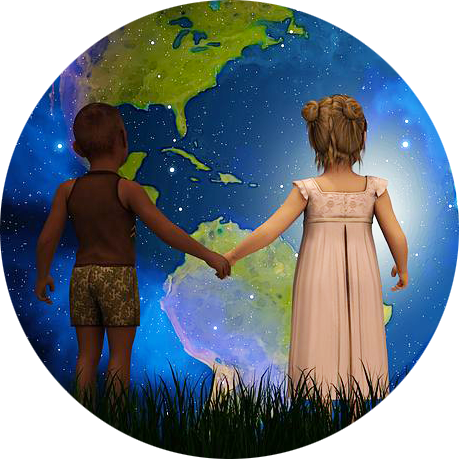
CONVERSATIONS THAT MATTER – AFRICAN DIALOGUES
Empowering women in Rwanda a conversation with Mahame Andrew Rusaza
and a post by Heidi about Dealing with life today
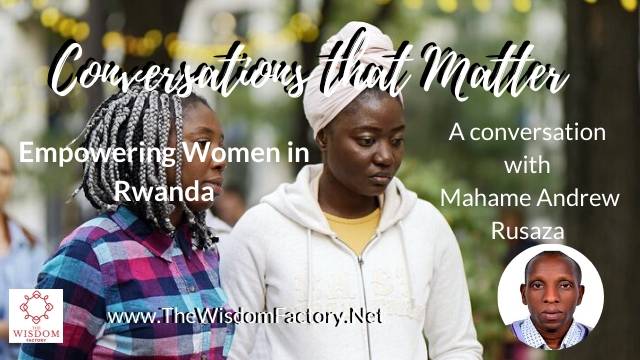
HEIDI WRITES
When we are born we start our personal journey through well known levels of development. We grow up physically, everybody is aware of that, but the psychological and spiritual growing up process is not much acknowledged while it certainly happens and leaves its mark on our own lives and that of the others around us. In every specific society there is a silent consensus of what is the appropriate level of its members. Previous levels are considered wrong, ill or inappropriate, people in levels not yet reached by the whole society are considered weird, sometimes even dangerous and to be locked away.
Our world always hosted people and societies of different levels of development. The incapacity to understand those who are advanced in respect to oneself has been leading to conflict and war from the very beginning. During the last century, tools were developed which allowed an understanding of the How and Why. Brilliant minds continue to offer insights and processes to deal with the problem. Piaget, C.G.Jung, Clare Graves, Sri Aurobindo, Jean Gebser and Ken Wilber, to name a few. Now interested people have an idea about the reasons and causes of what is going on right now, but there is no widespread understanding about what would be the right thing to think and to do. We collectively have lost the ability to make sense of the world. We have lost trust and constructive ways of being in the world. The war has come down to every aspect of our lives.
At least that seems to be the case, the Corona Crisis gives us the opportunity to observe how people position themselves and act by their level of maturity, often to their own detriment and that of others.
There is an old saying, something like: “if life gets too easy and too secure, human nature looks for trouble, so that people can come back to their senses”. In other words: when your main concern is feeding and clothing your children, you have no energy left to engage with fancy things or ideas. Or the other way round: when you have everything you need, you want more and more and you are never satisfied. You develop arrogance and the belief to be entitled to all these things which someone else has to provide for you. You start to engage in weird thought experiments, invent stories and activities, ever more outrageous, just to have something to fill your emptiness, the lack of meaning in your life.
Disasters have the power to bring people back to earth, back to the essentials of life. Natural disasters like earthquakes, floods, famine, vapant epidemies etc. Man made catastrophes, wars of all sorts, have this regulating force, too. But these disasters could be avoided if enough people had grown into levels of development, where different ways of conflict resolution and sensemaking can be adopted. As we can see clearly these days: we are far away from this desired stage of human development. Challenges seem to push people to fall back instead of growing, although that would be an available choice.
Having said this, there is a huge difference in how people and societies in our world handle these questions. If the leadership is located in a pre-rational level, especially in an egocentric state, expressed in absolutistic power claims, ( as we see in the US, Russia, Brazil, UK), who believe to know things better than science and who have the power to act out their ideas, the people suffer in an unproportional way. An incredible number of people could still be alive if things had been handled with care and consciousness, but they get killed by the virus because of the ignorance of their leaders – who, probably, would change their behaviour only when death knocks at their own door. But still then they might believe to be able to challenge God himself and either think they are immortal or want to take as many people with them into death, as a sort of vengeance. This is a psychological trait in humans, which we can allow or not allow to lead us, according to our moral and ethical maturity.
But it is not only about our leadership. In our Western countries people have become used to comfort and huge freedom in their personal lives. Instead of being grateful for what they have got, they feel entitled to their desired way of living without realizing that this comes with a cost, and that they themselves pay very little of it, but leave it to others to shoulder the burden. These can be the less privileged people in their own country or whole populations, including children, in other countries who work relentlessly so that we can live our illusory good life.
This sense of entitlement to have what we want, this deep egocentrism, is hidden in normal times, but comes out violently in difficult moments in the form of violence which is the expression of fear and insecurity, transmuted into rage and a total lack of care for anything. This is the case for instance with the riots in Stuttgart lately, where shops were destroyed and plundered by an enraged mob of young men who don’t know where to neutralise their adrenaline level in other ways. Since the shutdown, they cannot do that by watching soccer, the sublimation processes are not available, hence the acting out because of the lack in developing emotional intelligence. Most people today do not have a really good perception and sensemaking available, as well as the personal purpose for their life. And these incidents are the result.
We also see the huge uprising against discrimination against African Americans. A country based on immigration shows its inability to stay together and respect all its inhabitants. Also here the cause is not so much skin color, in my opinion, but the personal level of development of the main actors. In an ethnocentric mindset, only my group is valid, the other groups are enemies. This attitude we can see equally with fundamentalis white groups and fundamentalist “liberal” groups which believe themselves to be politically left – and therefore good. They might have started “left”, but regressed to ethnocentric where their “right” counterparts never left. This seems to me the only difference. So instead of making things better, by self-declaring their concern for minorities, they make their lives harder by putting them just in another box But BOX it remains. The identification with a group is problematic not only in politics, but it is emphasised everywhere. It is valid also for “the black community” which fights against the whites and claims a different treatment. Segregation into group identity on whatever ground doesn’t give the possibility for coming together in peace.
What happens in other countries? Africa for instance? I have met people from South Africa who are engaged in improving the precarious situation in all these countries who have histories of tribal wars and genocide, both consequences of the previous tribal level of development into the egocentric stage which was embraced in its unhealthy form expressed by the group leaders and their strategies. The wise elder from former times has given way to war lords thirsty for power over their people for whom they do not care anymore, but whom they see as allies and helpers in bringing about their personal goals.
While egocentric leadership is a regression in Western countries, in Africa and other countries it is a given so far, and the people try to overcome it with much effort to arrive in a conventional stage where institutions work properly and the leadership feels responsible for their people.
While in Western countries some people feel entitled to riot against institutions and the rules they impose – even if they make much sense and are necessary to be observed like in the case of Corona – in African countries the same stage is a desirable goal, a step up in the development of the society, a precious achievement. No wonder that the protests against the Corona measurements come from our Western countries who have forgotten the necessity of regulations in their ideological ideas of an illusionary functioning of society. African countries do relatively well with Corona, and they still have a lot to do to step out of the misery of the past. Their minds and actions have a purpose, their goals are realistic and often still concerned with the basic needs of life, with overcoming poverty. No time and energy left in order to fight for all these fancy ideas which Westerners have the privilege to spend their time and money on.
I think we need to come to terms with our lives on this planet in a more than sustainable way, and first of all we Western countries who have been able to develop so far by exploiting the means and energy of other countries, like Africa. We need to take responsibility and find a real purpose of our own lives which is based on ourselves, our own capacities and which recognises that we need to stop our waste in material, energy and even thoughts and theories. With these we are still enslaving the others and holding them back from a healthy development into the next stage which is due for them. With our interference and bad example we guide them into the same unhealthy pathways, which inevitably lead to ever more human disasters, I am afraid.
We actually are in the lucky conditions that we have already developed the means for a peaceful and respectful way of living together – we only need to apply them on a large scale. Some are technological, but most are HUMAN. We need to heal our own inner wounds from past and present wars, we need to learn how to create respectful relationships with others, to learn to live in self-regulating communities without “power-over” structures AND we need to do our own inner journey, learn about our emotions, our triggers and take back the responsibility for ourselves. We need to set others free and at the same time state clear boundaries, we need to renounce power games in all areas of life. We need to listen deeply to ourselves and to others, open our hearts and create situations where deep encounters are possible and transformation can take place. This all is possible – if we have the willingness to practice.
We cannot wait any more that God or other people do the work for us. We, the privileged people who do not need to fear for the daily bread, have enough time to dedicate to growing up, waking up, and to helping others in their processes. Instead of spending whole weekends in shopping centers or other activities which just pass time, coming to the purpose of our own lives would change the people and the world in a non violent and effective way.
In my conversation with Mahame from Rwanda I was interested in how life is in that country. I wanted to learn about the manyfold efforts they make in order to overcome the violent past and to create a healthy society. They aspire to reach a stable conventional stage which people in our Western World condemn and try to destroy, without realising how important it is.
Listen to what Mahame has to share about his work to empower women and young people and how his life has unfolded up to the present. Unfortunately the internet connection was not good, it needed some editing, but I am sure you will get the points.
Videopost for July 8th, 2020
About Mahame Andrew Rusaza
MAHAME Andrew is a graduate from National University of Rwanda, Faculty of Political and Administrative Science, Andrew was born in 1979 and grown in a refugee camp in Uganda and refugee, with three years’ experience in business facilitation, business coaching, youth and women empowerment a sense of hope have been created among individuals, the qualities such as leadership, project management, advocacy and team work have driven me to success. I am a lifelong learner always dedicated to give back to my community.
Madame’s aim is to always expand and utilise his knowledge, skills and potential to create positive change for youth and women. MAHAME Andrew is a Founder and Executive Director of Youth for Development and Human Advancement a non-governmental organisation that promote Human rights and development of youth and women; empowering them with life skills for active participation in the development of their country.
Website: http://www.ydhra.org/
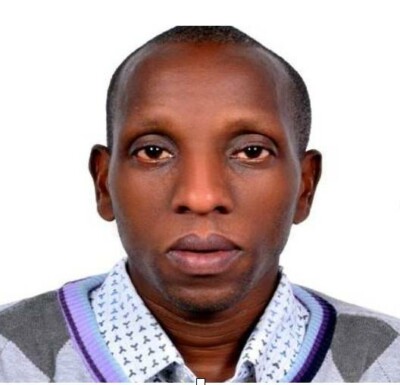
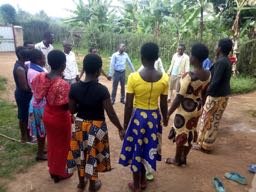
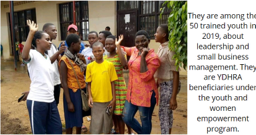
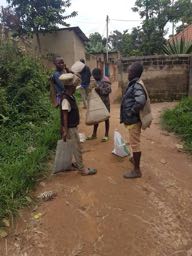
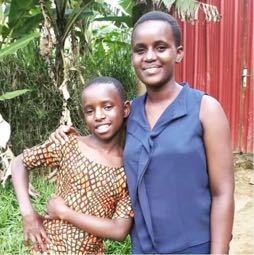





Leave A Comment